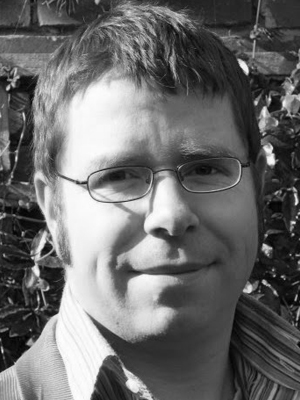Dr Martin O’Neill
ISRF EARLY CAREER FELLOW 2014-15
This is a major research project in normative political philosophy, addressing the justice and justification of a number of specific real-world economic institutions. Its aim is to make fuller sense of emerging ideas of “predistribution”, questioning whether predistributive strategies can generate a positive direction for future progress towards more just and democratic societies. In particular, the primary area of examination will be designing and realizing a more democratic financial system, with a particular focus on the justifiability and plausibility of ideas relating to the democratization of capital investment.
The credit crunch of 2007, and the worldwide financial and fiscal crises that have come in its wake, have raised deep and difficult questions about the proper organization and regulation of our economic system. My project will examine the underlying philosophical aspects of these questions, seeing financial regulation as one significant dimension of the pursuit of social justice within democratic societies. This involves examining the desiderata of a system of financial regulation in terms of underlying political values of liberty, autonomy, equality, democracy and social justice.
In recent years, analytic political philosophy has become excessively cut-off from economics and political economy, to the detriment of each discipline. My project will pursue a significant reintegration of these disciplines, breaking new ground on the interdisciplinary discussion of fundamental questions regarding the organization of economic life in democratic societies. It will push forward an ambitious new agenda in “applied political philosophy”, which has the potential greatly to influence the development of the subject, and also to influence broader debates about the politics of social democracy and of the European social model.
This project will bring significant benefits to neighbouring disciplines, to policymakers, and to the general democratic debate, in Europe and elsewhere, on central questions regarding the future organization of our economies and our societies.

Martin O’Neill moved across to the Department of Philosophy in 2018, having taught in the Department of Politics at York since 2010. Before that, he was Hallsworth Research Fellow in Political Economy at the University of Manchester (2007-2009), and, before that, Research Fellow in Philosophy and Politics at St John’s College, University of Cambridge (2004-2007). He did his PhD in the Department of Philosophy at Harvard University, supervised by T. M. Scanlon and Derek Parfit. During his time at Harvard he also spent time as a Graduate Fellow at the Edmond J. Safra University Center for Ethics, and as a Graduate Fellow in the interdisciplinary Project on Justice, Welfare and Economics. Before that he did a BA in Philosophy, Politics and Economics (PPE), and later the B.Phil in Philosophy, both at Balliol College, University of Oxford.
Originally from London, Martin has been living in the north of England for more than a dozen years, and now thinks of himself as an adopted Northerner. One of his proudest achievements is to be raising four Arsenal fans in Yorkshire.
Martin was also awarded an ISRF Mid-Career Fellowship in 2017.
SELECTED OUTPUTS & ACTIVITIES
Contacting Fellows
If you would like to contact any of our Fellows to discuss their ISRF-funded work, please contact Dr Lars Cornelissen (Academic Editor) in the first instance, at [email protected].





